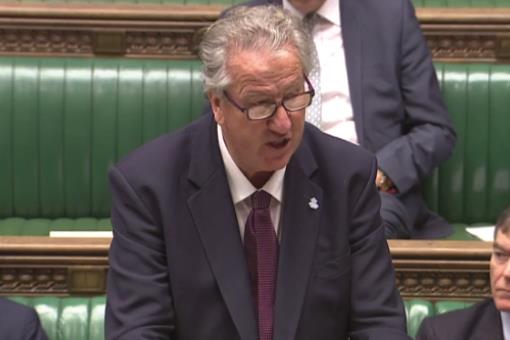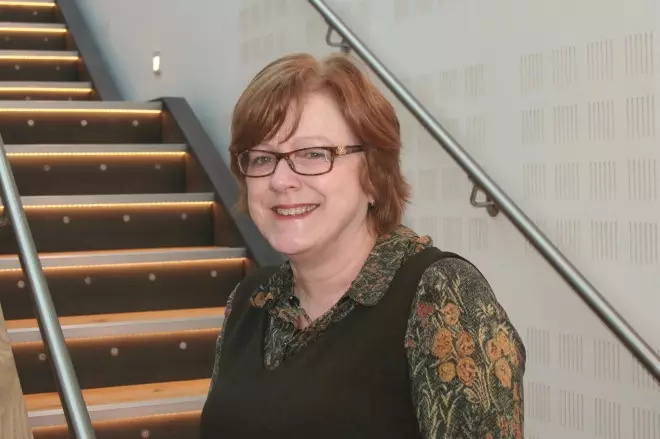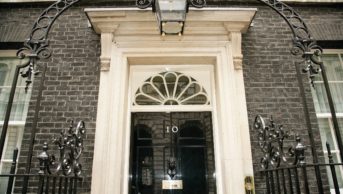
Department of Health
Pharmacy minister and Conservative MP for Warrington South, David Mowat, has lost his seat in the 2017 UK general election.
Mowat, who oversaw the government’s funding cuts to community pharmacy in England in December 2016, received 27,445 votes, putting him second to Labour MP Faisal Rashid, who received 29,994 votes.
It is understood he will keep the pharmacy brief until a replacement can be found. Following the result Mowat said: “I’m clearly disappointed, we were hoping to win nationally and obviously I was hoping to win here in Warrington. Faisal has won, I think by just over 2,000 votes and I wish him all the best now as the MP of the town.”
Ian Strachan, chairman of the National Pharmacy Association (NPA), says that a change in pharmacy minister will enable fresh thinking in government about pharmacy policy.
“New people and new relationships could lead to new ideas and new outcomes, but it is too early to jump to conclusions, given that so much is currently up in the air politically.
“This is certainly a change moment for pharmacy, coming on the back of a High Court verdict that made it clear things can’t go on as before,” he says.
After a tumultuous night of politics, the UK election concluded in a hung parliament as prime minister Theresa May failed to secure the mandate for her version of hard Brexit and, instead, lost her majority.
May will visit Buckingham Palace at 12.30pm on 9 June 2017 to seek permission from Queen Elizabeth II to form a UK government on the basis that the Democratic Unionist Party (DUP) will support her minority administration.
As it stands, the Conservatives are projected to be left with 318 seats, a loss of 13, Labour are likely to have 261 seats, a gain of 29, and the Scottish National Party (SNP) will have 35, a loss of 21. The Liberal Democrats are predicted to have 13 seats, an increase of five seats, although in a surprise result, former Lib Dem leader Nick Clegg lost his seat in Sheffield Hallam to Labour. The UK Independent Party (UKIP) also saw a dramatic fall in votes; however, rather than moving en masse to support the Conservative Party, as was predicted, it appears that voters instead switched to Labour.
“This has been an extraordinary election for so many reasons and at this early stage it is impossible to say exactly what it will mean for community pharmacy,” says Sue Sharpe, chief executive of the Pharmaceutical Services Negotiating Committee (PSNC).
“PSNC will, of course, seek to begin discussions with health ministers at the earliest opportunity to develop policy to secure a strong future for community pharmacy,” she adds, saying that the organisation’s primary aim will be to ensure that any new government understands fully the value and potential of community pharmacy.

Source: MAG/The Pharmaceutical Journal
Sandra Gidley, chair of the RPS English Pharmacy Board, says the start of a new parliament “offers the government an opportunity to reset and rebuild its relationship with community pharmacy”.
The Royal Pharmaceutical Society (RPS) is also keen to work with the incoming government to ensure it delivers on its promises, according to the chair of the RPS English Pharmacy Board, Sandra Gidley, particularly as, for the first time, each of the manifestos from the main parties in England recognised the important role of community pharmacists in delivering healthcare.
“The start of a new parliament now offers the government an opportunity to reset and rebuild its relationship with community pharmacy. We look forward to working with it and the other pharmacy organisations to ensure it delivers on these commitments,” says Gidley.
“The next government must now start to work with the RPS and community pharmacy sector to describe a positive future where the skills of pharmacists working in community are properly utilised.”
In its manifesto, the Conservative Party pledged to support pharmacies in rural areas and ensure that all community pharmacies play a stronger role in keeping people healthy and out of hospital. It also promised to “legislate to reform and rationalise the current outdated system of professional regulation of healthcare professions”.
Labour pledged to halt plans to close pharmacies across England as well as put a stop to sustainability and transformation plans (STPs) that aim to cut costs and integrate health and care services. The Labour manifesto also promised to ensure the UK maintains its leading research role by staying part of Horizon 2020 and welcoming researchers to the UK, and also said it would like to maintain membership of certain European organisations, including the European Medicines Agency.
Jeremy Hunt held onto his seat in South West Surrey for a fourth, consecutive election. However, National Health Action Party member and GP Louise Irvine was able to successfully cut his majority, coming in with 12,093 votes, which she says sends a “very powerful message” to Hunt and the incoming government and “lays the foundations for a new type of politics”.
“What this tells me is that people here in South West Surrey are extremely concerned about what is happening to our NHS and feel that it’s under threat,” she says.
Maree Todd, Member of Scottish Parliament for the Highlands and Islands Region and a former mental health pharmacist, says the loss of seats for her party was disappointing but that the SNP will continue to seek delivery on its commitments.
“The Tories lost their majority across the UK while the SNP maintained its majority in Scotland, but there is no doubt that the loss of a number of seats – including those of Alex Salmond and Angus Robertson – is disappointing,” she says.
“Our MPs will seek to deliver key commitments we share with other progressive parties such as: an end to austerity; increased investment in public services, including the NHS; fair pensions for older people by maintaining the triple lock; and making sure that work pays with a rise in the minimum wage,” she says.
In the event of a hung parliament, where none of the parties has achieved an overall majority of 326 seats, the leader of the party with the highest number of seats is given the opportunity to form a government first. This may be a formal coalition with other parties in which coalition partners share ministerial jobs and push through a shared agenda. Alternatively, this could result in a more informal arrangement, known as “confidence and supply”, whereby the smaller parties agree to support the main legislation put forward by the largest party but do not formally take part in government.
If May continues as leader of the Conservatives she will attempt to form a coalition, possibly with the DUP, to take her over the threshold needed to obtain a House of Commons majority. Failing this, there is a chance that the UK will be facing yet another election later this year.
The Pharmaceutical Journal contacted David Mowat’s constituency office for a response but at the time this article was published had received no response.


